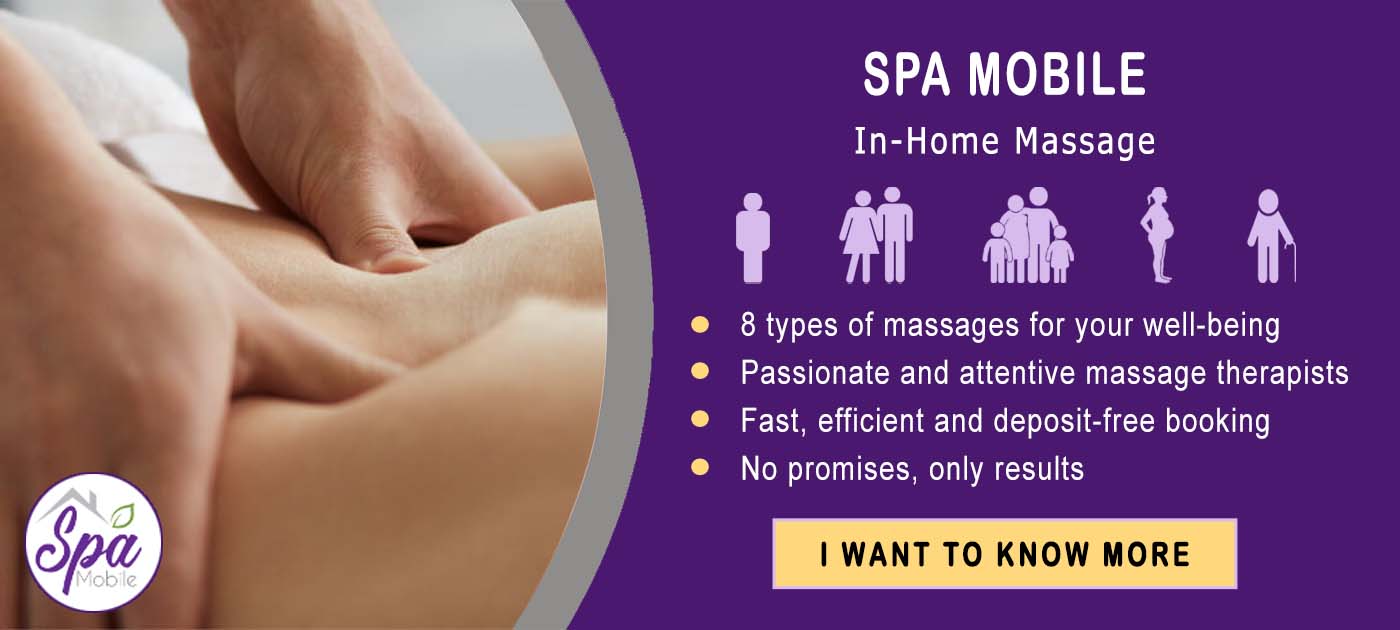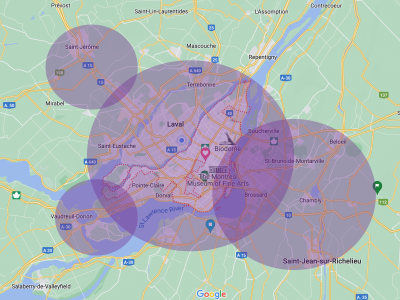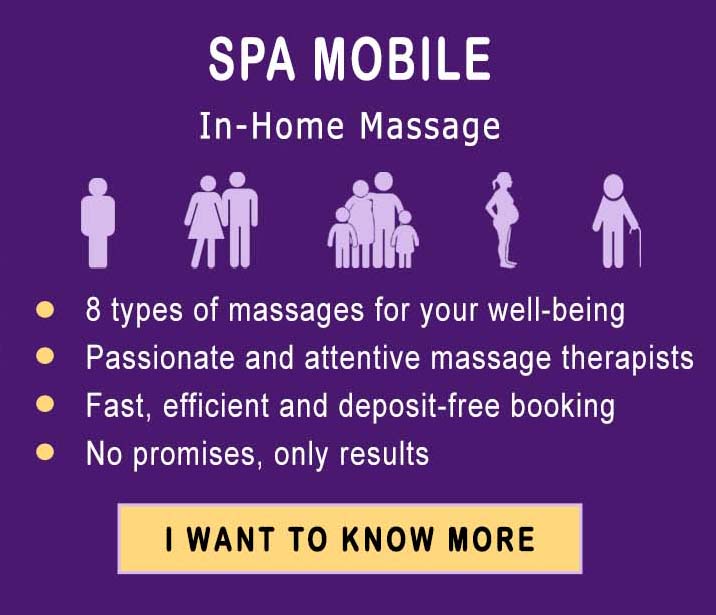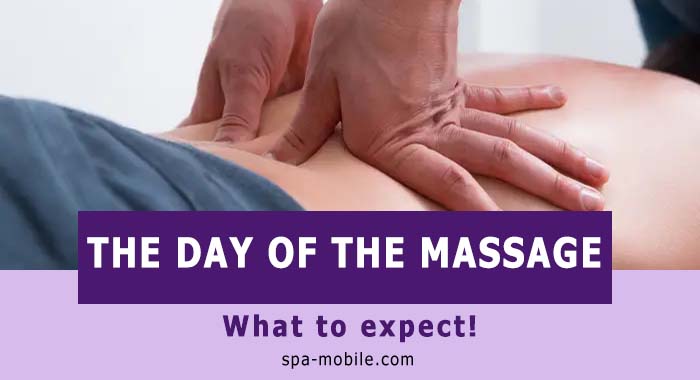Do you have sore muscles?
Are your muscles injured from hard training?
Are you so sore with your muscles that you can’t do your daily activities?
If you are highly physically active, these conditions are accurate and occur regularly. However, too many people forget the signs that their bodies communicate to recover well and thus aggravate muscle problems.
Recovery isn’t just about rest time; it’s also about treatments that benefit your muscles through deep tissue massage.
How does deep tissue massage work?
Spa Mobile massage therapists use their knuckles, fingers, and sometimes elbows to reach specific, deeper layers of tissue and muscle.
Their goal is to reduce tension and relax your tense muscles.
Deep tissue massage doesn’t always work immediately, so if you don’t feel a difference during your massage therapy sessions, don’t worry.
This therapy not only helps targeted areas but also allows your whole body to relax your muscles and lower your blood pressure.
How can this massage help you with your injured muscles?
Massage therapists understand that injured muscles can be painful.
They keep this in mind and listen to your and your body’s reactions to the pressure of deep tissue massage. That being said, there is a common pain reaction to those receiving this therapy for injured muscles.
This reaction is an emotional pain release that is caused when massage therapists release the tension and ailments caused by injuries, tight muscles, and negative emotions.
Deep tissue massage is not necessarily targeted but can help relieve general pain exerted on the tendons, ligaments, or fascia.
Types of deep tissue massage
Specific methods used in deep tissue massage produce different results. It is important to know them so that we can discuss them with our massage therapist.
- The friction between the fibres may feel painful at first, but it causes a release of muscle tension that you feel pretty quickly.
- The active release technique uses a thorough examination to determine which muscles need the most help. The massage therapist then focuses on these areas to help them heal.
- The muscle energy technique stretches muscles and tissues. It is used by massage therapists, sports massage specialists and even some physiotherapists. It reduces restrictive edema and restores muscles to their average elasticity and length.
- Trigger point therapy focuses on specific muscle injuries and strains. Its benefits can be experienced after just one treatment.
- Myofascial release is another targeted method of deep tissue massage. It’s a gentler technique that is suitable for more sensitive injuries.
What if deep tissue massage is too painful?
If you begin to feel pain that lasts or pain that is not just uncomfortable but sharp, inform our massage therapist and stop the massage.
Examples of this include throbbing pain and tenderness to the slightest pressure.
So, communication is vital if you want your deep tissue massage to heal your muscle injuries effectively.
If you are worried, feel too much pain or need more pressure, let our massage therapist know.
Are there any side effects with deep tissue massage?
It is expected to have persistent pain for a few days after a deep tissue massage. A heating pad or a cold compress wrapped in a towel can help relieve the pain.
Although massage therapy is generally safe, deep tissue massage uses substantial pressure and may not be safe for everyone.
Speak to our massage therapist before having a deep tissue massage if you:
- Have a history of blood clots or a bleeding disorder;
- Take blood thinners;
- Have cancer or are undergoing cancer treatment;
- Have osteoarthritis.
Anyone with osteoporosis or cancer that has spread to the bones should avoid deep tissue massage, as the firm pressure used can cause a fracture. You should also suspend deep tissue massages if you are pregnant. —gentlerypes of massage, such as relaxing, maybe a better option.
If you have an open wound or skin infection, you should reschedule your appointment to avoid developing a new disease or worsening an existing infection.







